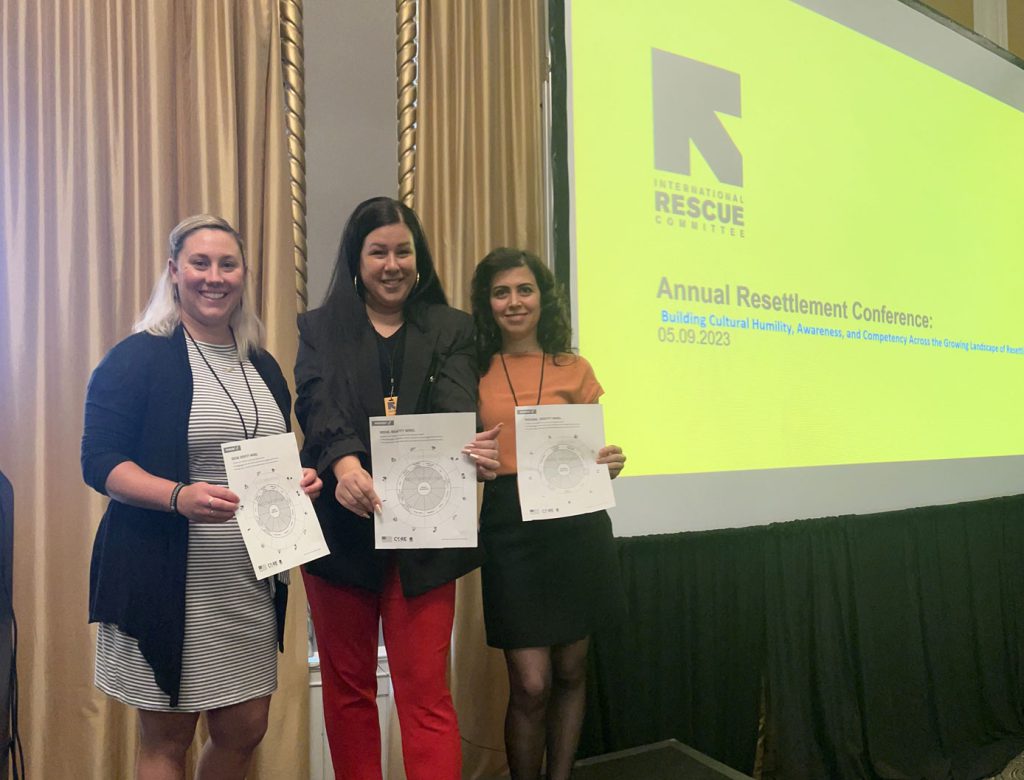
Have you ever asked yourself any of the following questions?
- Why did you choose refugee resettlement as your career?
- What are your hobbies?
- What is your favorite dish and why?
- How much do you know about newcomers’ cultures?
If not, spend the next five minutes answering these questions. If possible, ask a colleague to answer these questions about you.
Now think and reflect on what you learned. Questions like these help us learn more about our personal and social identities, the different pieces that make us who we are. By looking introspectively, we can understand more about ourselves and our backgrounds. This is called cultural awareness, and it refers to openness to reflecting on how one’s culture and background may or may not be similar to those of others, including newcomers and colleagues.
Recognizing the diversity in our backgrounds and cultures is the first step towards cultural humility. It dispels stereotypes and assumptions when working with others who are different and invites practitioners to tweak and adapt their approaches using the strengths and assets others bring. Cultural humility is a lifelong process focusing on self-reflection and personal critique, acknowledging one’s own biases.
Practicing cultural awareness and humility helps us build our cultural competency, which entails actively seeking to learn about the cultures and backgrounds of our colleagues and those of newcomers. It is important to recognize that cultural competency is not achieved in a single course or training. It is an approach that should be implemented in all our interactions with colleagues and newcomers.
CORE adopts cultural humility, awareness, and competency as guiding principles for teaching Cultural Orientation. To put these principles into action, Manar Marouf, the Instructional Design and Education Officer at CORE, co-presented on this subject during the IRC’s Annual Resettlement Conference in May in Baltimore. The session brought together 180 participants who explored their individual and social identities, engaging in self-reflective activities focused on cultural exchange with the goal of fostering culturally competent teams. Attendees also gained insights into CORE’s collaboration with community sponsors in delivering Cultural Orientation to newcomers. For more information on CORE’s work and to request support in implementing cultural humility, awareness, and competency in your own work, please refer to the resources below:
- To learn more about personal and social identities, take CORE’s self-paced course on navigating identity and inclusion in refugee resettlement.
- To learn more about cultural humility, awareness, and competency, check CORE’s how to guide.
- To learn more about cultural exchange activities, check CORE’s resources for community partners and sponsors.
- To learn how to implement those concepts in your work and build your office’s cultural competency, reach out to CORE by filling out this form.


